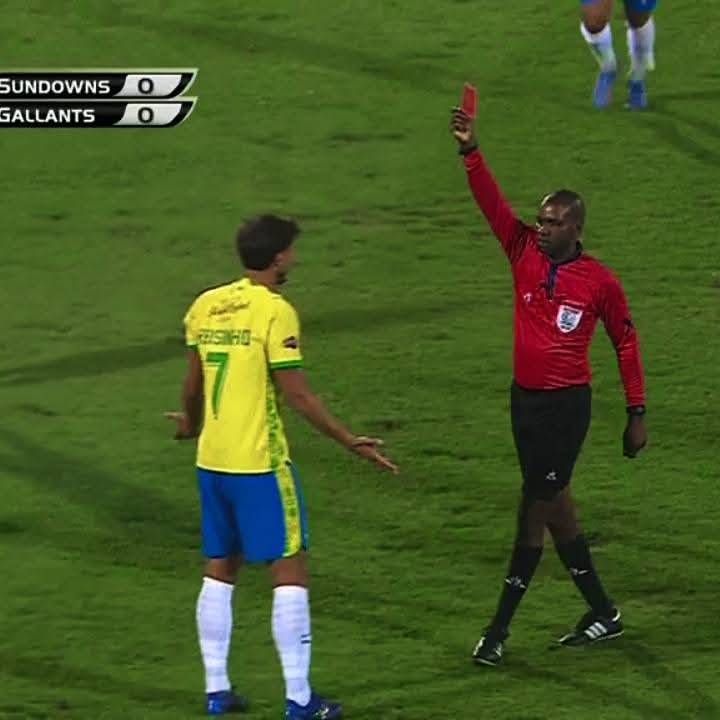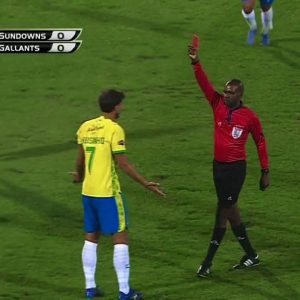Full Name: Ephraim Matsilela Sono
Nickname: Jomo; The Black Prince; Bra J.
Date of Birth: 17 July 1955
Place of Birth: Soweto, Johannesburg, South Africa
Profession: Football Club Owner, Former Professional Footballer, Coach, Talent Developer
Notable Roles: Founder and Owner of Jomo Cosmos FC, Orlando Pirates Legend, NASL Player, National Team Coach
Honours: Order of Ikhamanga (Silver)
Ephraim Matsilela “Jomo” Sono is one of South Africa’s most iconic football figures — a gifted player, visionary coach, shrewd businessman, and tireless talent developer. Rising from humble beginnings in Soweto after the early death of his father, Jomo dazzled fans at Orlando Pirates before taking African football to the world stage with stints in the United States alongside legends like Pelé. He later founded Jomo Cosmos, leaving an enduring mark by discovering and nurturing generations of South African football stars.
Early Life and Football Beginnings
Born in Soweto, Johannesburg, South Africa.
Attended Orlando West High School.
Son of Orlando Pirates legend Eric “Scara” Sono.
Forced to sell peanuts and newspapers at stadiums to support family after his father’s death.
Nicknamed “Jomo” after Jomo Kenyatta, the first black President of Kenya.
Picture of Eric Scara Bamuza Sono taken from facebook:

Orlando Pirates Stardom
Made professional debut for Orlando Pirates at age 15.
Became a crowd favorite for his flair, dribbling, creativity, and goal-scoring.
Left South Africa at age 17 to sign for Sporting Lisbon in Portugal.
Other clubs interested included Stoke City (England).
Famous incident in 1979: left his own wedding to help Pirates come back from 0-2 down to beat Highlands Park, scoring one goal and assisting three.


International Career – New York Cosmos and NASL
In the late 1970s, Jomo Sono moved to the United States, joining the New York Cosmos in the North American Soccer League (NASL).

At New York Cosmos, Jome played with the Brazillian legend, Pele.


He completed his 7 years in America with the Toronto Blizzard, where he teamed up with another South African legend, Ace Ntsoelengoe.

Highlights:
– Played alongside global icons like Pelé and Franz Beckenbauer
– Helped grow awareness of African talent on the global stage
– Represented other NASL teams including Colorado Caribous and Atlanta Chiefs
Return to South Africa –
Upon his return to South Africa, Jomo immediately went into business:

- Opened the first KFC outlet in Soweto. He ended up owning more than 6.
- In the early 2000s, he founded Exel Petroleum, a fuel distribution company that quickly rose to prominence in South Africa. The company later merged with SASOL.
- Established the Sawubona Hotels.
- Invested in Vecto, a finance company.
- Established BladeSA, a razor manufacturing company.
Founding Jomo Cosmos
In 1982, Jomo Sono returned home and established his own club: Jomo Cosmos, named in honour of the New York Cosmos.

Achievements:
– NSL Champions (1987)
– Produced and developed dozens of top South African talents
– Became known as “The Godfather of Talent Development” in South Africa
Became one of the few player-owners in world football.
Focused on scouting, nurturing, and selling players to bigger clubs.
Notable players developed:
- Pitso Mosimane
- Mark Fish
- Philemon Masinga
- Helman Mkhalele
- Edward “Magents” Motale
- Linda Buthelezi
- Reneilwe Letsholonyane
- Sizwe Motaung
- Mark Williams
- Chris Katongo
- Godfrey Sapula
- Dikgang Mabalane, among others.
National Team Leadership
Jomo Sono served as the caretaker coach of the South African national team on multiple occasions, including:
– 2002 Africa Cup of Nations
– 2002 FIFA World Cup, leading Bafana Bafana with distinction
He played a vital role in stabilizing the national team and promoting homegrown talent.

Awards and Recognition
For his immense contribution to the sport, Jomo Sono was awarded the Order of Ikhamanga (Silver) by the South African government — one of the highest honors for excellence in the field of arts, culture, literature, and sport.
Along with Dr. Kaizer Motaung and Dr. Irvin Khoza, Jomo Sono contributed immensely to the development of football in South Africa:

In 2016, Jomo Sono was awarded honorary doctorates by the University of London and the University of Dubai.
Jersey Number 10 Controversy:
Personal Life
Jomo Sono is married to Gail Sono, and together they have children involved in football and business. Despite his fame, Jomo remains deeply rooted in community work and continues to invest in youth football development.
His son, Bamuza Sono, named after his grand-father, played for Jomo Cosmos. His other son, Matsilele Jomo Son Jnr. developed and launched a technology device that tracks players’ performance. He partnered with the UK company, Playmaker.


His Inspiration
Bra J, as Jomo Sono is affectionately known, says his biggest inspiration is his grand-father who raised him. Jomo’s grand-father was blind but he ran a successful small shop. He says if his grand-father, who could not see, could run a successful small business, why can’t he reach any heights he sets his sights on!
Legacy
Jomo Sono’s legacy is unparalleled in South African football:
– Pioneer of African football excellence abroad
– Champion of black-owned football structures during apartheid
– Mentor to generations of stars including Mark Fish, Philemon Masinga, Helman Mkhalele, and Bennett Mnguni
He is widely considered one of Africa’s most influential football figures, both on and off the pitch.
Summary Profile
Name: Ephraim Matsilela “Jomo” Sono
Born: 17 July 1955, Soweto, South Africa
Clubs Played For:
– Orlando Pirates
– New York Cosmos
– Colorado Caribous
– Atlanta Chiefs
Coaching/Administrative Roles:
– Founder and Owner – Jomo Cosmos (since 1982)
– Coach – Bafana Bafana (2002)
– National Team Talent Scout and Advisor
Honours:
– Order of Ikhamanga (Silver)
– NSL Champion (1987)
– Icon of South African football
Jomo Sono’s legacy stretches far beyond the football pitch. He stands as a symbol of resilience, excellence, and empowerment — a man who built opportunities not only for himself but for countless others during some of South Africa’s most challenging times. His influence on the sport, business, and youth development continues to inspire a new era of African excellence both locally and internationally.


















